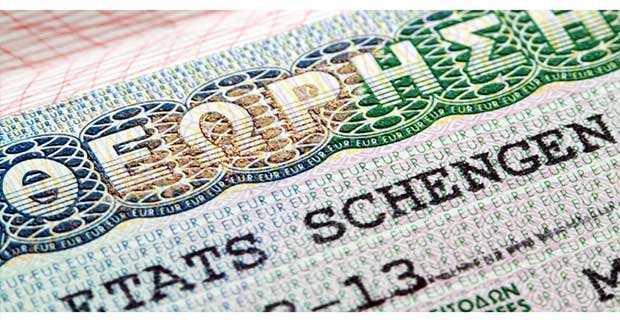
Greece offers a captivating study destination renowned for its rich history, stunning landscapes, & vibrant culture. With a legacy of academic excellence dating back to ancient times, Greece continues to attract students from around the world seeking unique educational experiences. From modern universities offering diverse programs to opportunities for cultural immersion and exploration, studying in Greece promises a blend of academic rigour and unparalleled experiences. Whether delving into ancient philosophy, contemporary arts, or scientific research, students can discover a dynamic learning environment against the backdrop of Greece’s timeless beauty and warmth.
Application Process for Greece’s September Intake

Eligibility Criteria
Academic Qualifications: Applicants must meet the academic requirements specified by the university and the chosen program of study.
Language Proficiency: Depending on the language of instruction, applicants may need to provide evidence of proficiency in Greek or English through standardized language tests such as the Greek Proficiency Test (Ellinomatheia) or TOEFL/IELTS.
Other Requirements: Additional criteria may include letters of recommendation, a statement of purpose or motivation letter, and relevant work experience, depending on the program.
Application Timeline
Application Submission: Deadlines for submitting applications vary depending on the university and program. Typically, applications for the September intake open several months in advance, with deadlines falling between March and June.
Document Submission: Applicants are required to submit supporting documents, such as transcripts, certificates, and language proficiency test scores, by the specified deadline, usually a few weeks after the application deadline.
Visa Application: International students may need to apply for a student visa to study in Greece. Visa application deadlines vary by country, so applicants should check with the Greek embassy or consulate in their home country for certain requirements and deadlines.
Application Methods
Online Platform: Many universities offer online application portals where applicants can create an account, complete the application form, & upload the required documents electronically.
University Website: Alternatively, applicants may download application forms from the university website, fill them out manually, and submit them by mail or in person.
Paper Application: Some universities may require paper applications submitted by mail or in person, along with hard copies of supporting documents.
Required Documents

Academic Transcripts: Official transcripts from previous educational institutions attended, including grades and courses completed.
Certificates: Copies of academic certificates or diplomas obtained, such as high school diplomas or bachelor’s degree certificates.
Language Proficiency Test Scores: If required, official scores from standardized language proficiency tests such as TOEFL or IELTS.
Letters of Recommendation: Typically, two to three letters of recommendation from teachers, professors, or employers who can attest to the applicant’s academic abilities and character.
Statement of Purpose/Motivation Letter: A written statement outlining the applicant’s academic and career goals, reasons for choosing the program, and how they plan to contribute to the academic community.
Passport: A copy of the applicant’s valid passport or other identification documents.
Additional Documents: Depending on the program, applicants may need to provide additional documents such as a CV/resume, portfolio (for art or design programs), or proof of relevant work experience.
Selection Process
Universities typically evaluate applications based on a combination of academic qualifications, language proficiency, letters of recommendation, and the applicant’s statement of purpose. Admissions committees may also consider factors such as diversity, extracurricular activities, and relevant experience when making decisions. Once applications are reviewed, universities notify applicants of their admission status, usually via email or through the online application portal.
Visa Application Process for International Students in Greece

Types of Visas
Student Visa (Type D Visa): This visa is required for international students planning to study in Greece for more than 90 days. It allows students to enter Greece and stay for the duration of their studies.
Schengen Visa (Type C Visa): Students from certain countries may need to apply for a Schengen visa if their study program in Greece is for less than 90 days or if they plan to travel to other Schengen countries during their stay.
Requirements for Student Visa (Type D Visa):
- Completed visa application form.
- Valid passport with at least two blank pages & a validity period extending beyond the intended stay in Greece.
- Letter of acceptance or admission from a recognized Greek educational institution.
- Proof of financial means to cover living expenses in Greece (e.g., bank statements, scholarship letters).
- Health insurance coverage is valid for the duration of the stay in Greece.
- Police clearance certificate or certificate of good conduct from the applicant’s home country.
- Passport-sized photographs meet specific requirements.
- Visa application fee receipt.
Completing and Submitting the Visa Application

- Applicants should obtain the visa application form from the website of the Greek embassy or consulate in their home country.
- Fill out the application form accurately & completely, following the instructions provided.
- Compile all required documents according to the checklist provided by the embassy or consulate.
- Schedule an appointment for submitting the visa application and attending a visa interview, if required.
- Submit the visa application and required documents in person at the Greek embassy or consulate in the applicant’s home country.
Resources and Guidance
- The website of the Greek embassy or consulate in the applicant’s home country will provide detailed information on visa requirements, application procedures, and contact details for further assistance.
- Applicants can also seek guidance from the international student office or the admissions office of the Greek educational institution they plan to attend.
- Online forums and communities for international students in Greece may offer valuable insights and tips from others who have gone through the visa application process.
Information for International Students Planning to Study in Greece:
Cost of Attendance
Tuition Fees: Tuition fees in Greece vary depending on the university, program, and level of study. Public universities in Greece typically have lower tuition fees compared to private institutions. International students should check with their chosen university for specific fee structures.
Living Costs: Estimated living expenses in Greece include accommodation, food, transportation, utilities, and personal expenses. While costs can vary depending on the city and lifestyle, students should budget approximately €700 to €1,000 per month.
Other Fees: Additional expenses may include health insurance, visa application fees, textbooks, and extracurricular activities.
Scholarships and Financial Aid
Greek Government Scholarships: The Greek government offers scholarships to international students through programs such as the Hellenic Scholarship Foundation (IKY). These scholarships may cover tuition fees, living expenses, and other costs.
Institutional Scholarships: Many Greek universities offer scholarships and financial aid programs specifically for international students. These scholarships may be based on academic merit, financial need, or other criteria.
External Scholarships: International students may also explore external scholarship opportunities offered by organizations, foundations, or governments in their home countries or through international scholarship databases.
Pre-departure Preparation

Accommodation: Research accommodation options in advance, such as university dormitories, private apartments, or shared housing. Many universities offer assistance with finding accommodation for international students.
Transportation: Familiarize yourself with the public transportation system in Greece, including buses, trams, and metro lines. Consider purchasing a student transportation card or pass for discounted fares.
Cultural Orientation: Learn about Greek culture, customs, and etiquette to ease your transition to life in Greece. Consider participating in cultural orientation programs or language courses offered by your university or local organizations.
Visa and Legal Requirements: Ensure that you have obtained the necessary visa and residence permit to study in Greece.
Conclusion

In conclusion, Greece’s September intake offers an exciting opportunity for international students to embark on a transformative academic journey in a country steeped in history, culture, and innovation. By seizing the September intake, students can kickstart their educational odyssey with fresh beginnings, vibrant experiences, and limitless possibilities. From navigating the admission process to embracing the rich tapestry of Greek life, this September marks the beginning of an unforgettable chapter filled with discovery, growth, and endless adventures. So, gear up, dream big, and prepare to make your mark in Greece this September – your academic adventure awaits!

